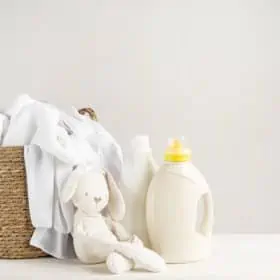
Keeping the treasured possessions in your wardrobe and throughout your home, fresh, clean, and in the best condition comes down to so much more than a well-timed wash and dry. Contrary to popular belief, one size doesn’t fit all when it comes to taking on the mammoth task of doing your laundry. Different fabrics need different care to stay in tip-top condition.
The supplies you need may also differ from fibre to fibre, with your use of fabric softener not always a necessity. In this blog post, we reveal the golden rules – and hidden dangers – of using fabric softener.
Fabric softener – a blessing or a curse?
There is, in fact, a long list of pros and cons that go hand-in-hand with fabric softener use. One Stop Dry Cleaning details one of the most celebrated advantages, besides the obvious benefit of increasing softness:
“It protects your clothes from colour fading, by creating a layer that protects the fibres. As a result of reducing abrasion while washing, there is less colour loss in the process, and the fibres remain protected and smooth. It adds protection against bobbling, so no more picking bits off of your favourite jumper. It makes sure the items you love, keep looking brand new!”
Along with reducing pilling in some fabrics, softeners can make ironing easier, lower drying times, minimise static for comfier wear, and help some clothing types maintain their shape for longer.
On the flip side, some fabric softeners contain chemicals, preservatives, dyes and fragrances that trigger irritation. Many fabric softeners are also far from sustainable, using petroleum-based ingredients that are harmful to the planet.
The disadvantages don’t end there. Fabric softeners tend to build up over time, creating a thick coating that prevents thorough washing and effective stain removal. For items like towels, fabric softeners can reduce absorption, which will make drying up after bathing or showering a real challenge.
When to use fabric softener
A fabric softener should only be used in a handful of washes. Those living in hard water areas will find the use of fabric softener particularly effective. The mineral content of hard water provides balance to unlock the benefits of softened laundry. Washing some types of bed linen with fabric softener will also be advantageous.
As a rule of thumb, synthetic fibres benefit the most from fabric softener use, but only when used in the right quantities.
When NOT to use fabric softener
Avoid using fabric softeners on natural fibres, such as wool and linen. You may think that using fabric softener on natural materials will increase softness, but it can actually have the opposite effect, causing bobbling, pilling and an altogether stiffer texture.
You should also skip the fabric softener when washing baby clothes or if you have sensitive skin to increase cleanliness, reduce irritation, and safeguard skin health. The same goes for flame-resistant items. Fabric softener can add a waxy coating that makes flame-resistant garments flammable.
If in doubt, leave it out!
If you’re not sure whether to use fabric softener or not, don’t! A fabric softener is not essential in any wash and can ruin selected fibres beyond repair. Protect your clothing and homeware by skipping this step, and instead explore our specialist textile care range to discover the perfect products.
Image: July Ko / Shutterstock.com